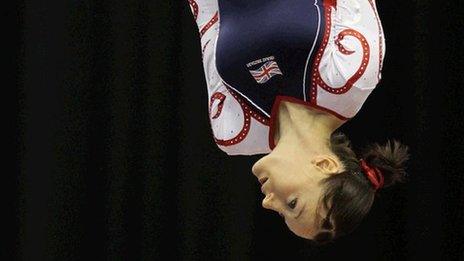Beth Tweddle on the problems of puberty for young sportswomen
- Published
- comments
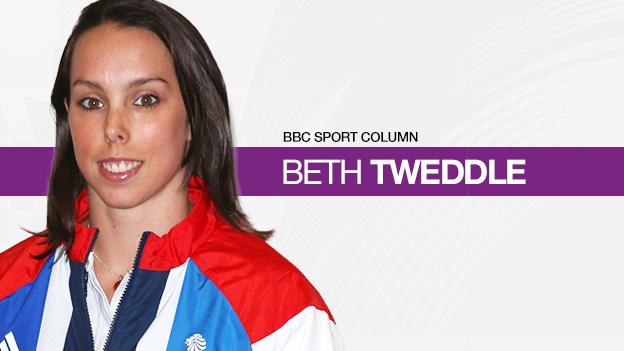
Beth says a supportive coach and family unit helped her cope with changes during puberty
In our latest column celebrating Women's Sport Week three-time world gymnastics champion Beth Tweddle talks about how puberty affected her as a young gymnast and how she managed to navigate the awkward life stage during her sporting career.
From the age of five or six you're in a leotard so there's not a lot of places to hide.
I developed quite early, I was about 12, and I remember being quite shy and quite embarrassed because my body had developed and a lot of my team-mates hadn't, but my coach took me to one side and told me to be proud of my body and that everyone develops, just at different rates,, external so she kind of turned me round.
I developed earlier than my gymnastics team-mates but later than my school mates, but I didn't really think about it at the time. But getting boobs I was like, 'Oh my god', I was a little bit freaked out about that, but both my mum and my coach were really supportive and didn't make a big deal out of it so I never saw it as a big deal.
My coach, Amanda Reddin,, external was really important as I was spending more hours with her than I did with my own mum. But Amanda made it very clear early on that I could always come to her if I had an issue and my mum was quite happy for me to talk to her because she knew I was away with her a lot of the time.
Read more: Women's Sport Week |
|---|
I'm not sure that it particularly helped that I had a female coach. I guess it was just a coincidence that Amanda was female and my relationship was always good with her, but I'm sure it's just the same with male coaches as well.
Coaches have got to know who their athlete is, what buttons to press and how they work best. You spend so much time with them that they learn everything about you.
Amanda could tell by my attitude in the gym, just my emotions, she literally knew me inside out. There were certain traits I had like movements on beam where I'd wobble more or do certain stuff so she literally knew exactly when I had my period.
And if I looked tired or she could see that I was struggling then she'd adapt my training programme so I'd never say it affected my training.
Luckily I was at home with my mum when I got my first period. She rang Amanda and said I wouldn't be in that night but then she said, 'look you've got to get used to it if this is what you want to do'. The next day when I went into the gym, Amanda took me to one side and just had a chat with me and said 'it's nothing to worry about, everyone has to go through it', so she was brilliant as well.
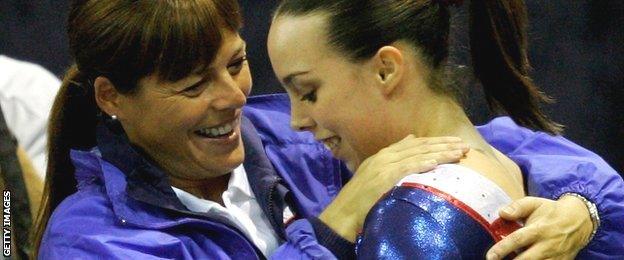
Beth Tweddle (r) says the training she received from Amanda Reddin was tailored to fit in with the changes she went through as a teenager
At school there were mainly female PE teachers but I think that girls will go to their friends to talk about any problems rather than going to a teacher and quite often that would be what happened in the gym as well.
I think most gymnasts are closer to their gym friends because they go through a lot more with them, you just go through a whole different rollercoaster of emotions when you're a gymnast and obviously you're in the gym 30-odd hours a week.
I was lucky and had a great relationship with my coach, but some of the youngsters have come to me and asked 'what do I do, what's going on' and I try and help them.
I was quite shy as a kid and my mum used to talk to me about loads of stuff and I was like, 'Mum, Mum, you don't need to say it', but I'm really glad that she did because I know some kids out there don't have that support behind them - so that's why I did a video interview, external for a teen website talking about puberty [it received over 30,000 hits] so they can just log on and see that.
I think young girls think it's just them and no-one else is going through it, so if they see top sport stars and athletes, musicians or whoever, talking about their experiences of puberty, it kind of shows that everyone's been through it.
Sometimes I'd go to the gym and feel a bit sorry for myself because I was a bit sore and had a stomach ache, but actually by doing exercise it made me feel better.
Beth Tweddle was speaking to Jo Gunston.
- Published7 June 2015
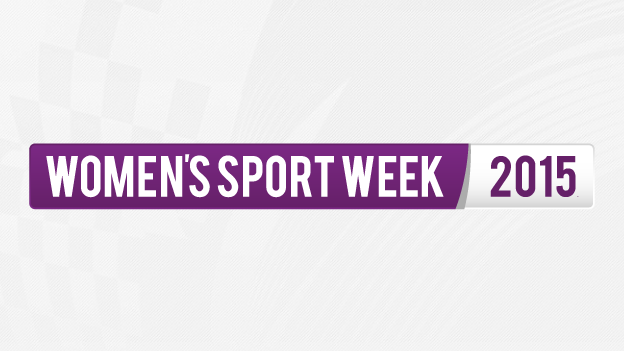
- Published20 January 2015
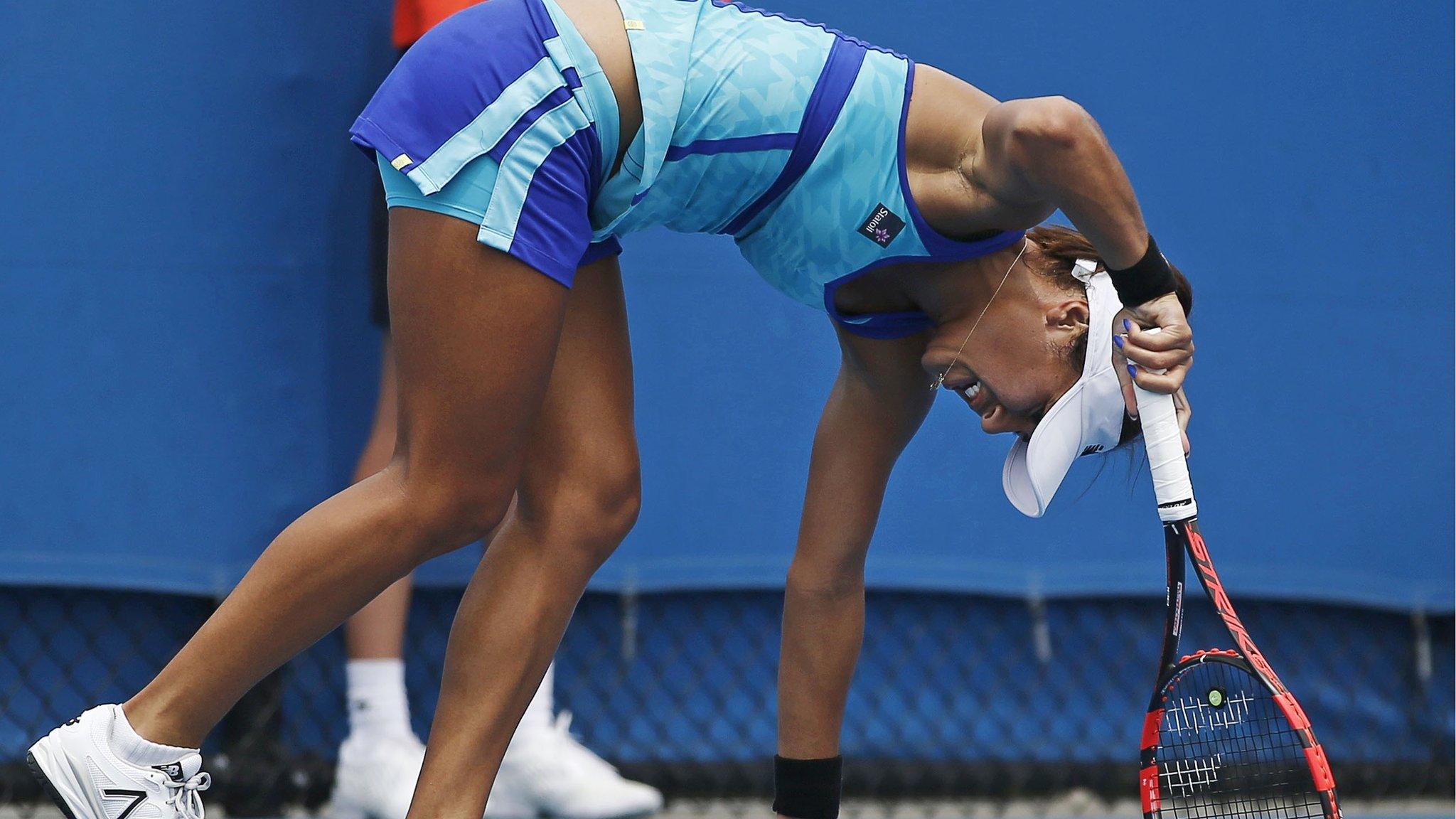
- Published5 June 2015
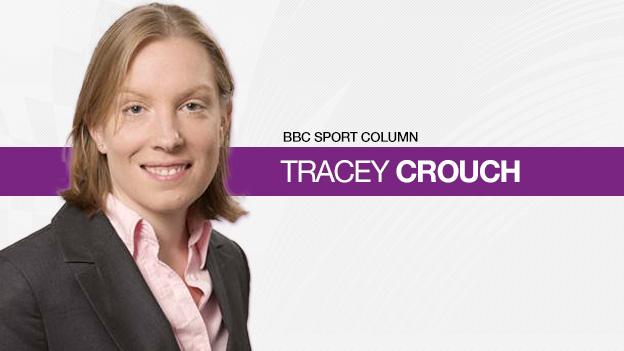
- Published4 June 2015
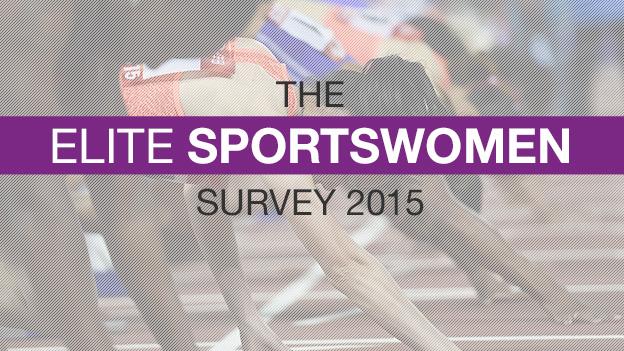
- Published10 May 2015

- Published29 August 2014
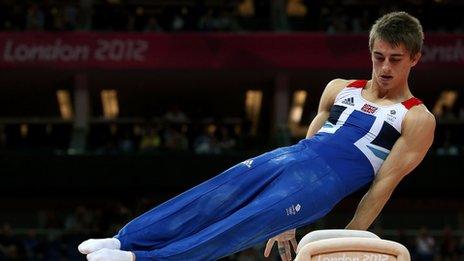
- Published29 August 2014
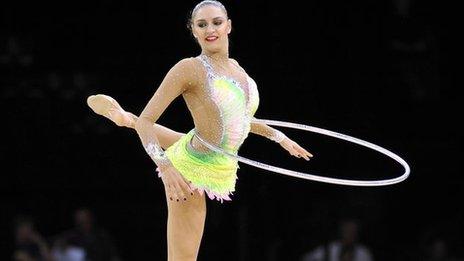
- Published29 August 2014
